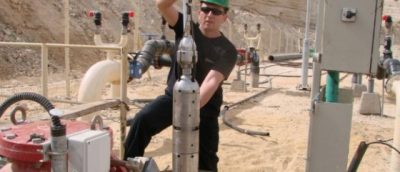 Garbage dumps roll into the sea? Rola suggests ways for energy intensive Lebanon to help ease its waste and energy problems.
Garbage dumps roll into the sea? Rola suggests ways for energy intensive Lebanon to help ease its waste and energy problems.
As Lebanon enters another waste crisis in the cities of Sidon and Tyre, with reportedly thousands of tons of waste piled up on the streets, the country finds itself once again looking for an urgent solution for its overfilled land capacity. With equally pressing power supply shortages, it’s time domestic petty politics are set aside and more attention is given to opportunities that modern waste management technology has to offer.
The waste crisis in Sidon and Tyre was re-ignited recently when the municipalities could no longer allow surrounding villages to throw their waste into the city’s main unsanitary landfills. Lacking any environmental guidelines and having virtually no waste treatment facilities, these landfills have reached full capacity and are contributing to the pollution of both the air and water aquifers.
Meanwhile, according to a recently published survey from experts of the Italian Cooperation Office in Beirut, there are more than 700 illegal and unsafe dump sites registered throughout the country. It is estimated that 40 percent of Lebanon’s garbage ends up in these makeshift dumps, and 50 percent in established landfills while only an estimated 10 percent gets recycled (NOW Lebanon). The latter is mainly metals and driven by the zealous scrap traders
In Lebanon, solid waste management falls under the responsibility of cash-strapped municipalities. Lack of funds, decades of civil war, corruption, and a weak tax system have all led to widespread environmental problems that municipalities are no longer able to deal with. In addition, due to the never ending political instability, no comprehensive national regulation scheme has been able to be implemented while the country’s only waste collection company continues to benefit of the dysfunctional current system.
Despite the introduction of various UN and European- funded initiatives to help the country develop a sound solid management system, such efforts have remained limited in scope and long- term effective waste management solutions have not been reached. Meanwhile, the governments past attempts at operating old incinerators and increase the market for recyclable materials have failed. So has its’ composting experience which was said to be plagued with operational problems and stopped due to public pressure that emanated from the adverse impacts of operating two old incinerators.
An energy intensive country
Lebanon is an energy intensive country, among the top per capita consumer compared to any other neighboring Southern Mediterranean countries. Apart from a modest amount of hydropower and traditional energy, which together represent less than 2% of energy consumption, all energy in Lebanon is derived from imported petroleum products and some coal used by the two cement factories.
Faced with a dual solid-waste and fuel shortage problem, Lebanon could obviously benefit from proven technology waste to energy projects that can operate using controlled incineration or gasification. Studies have been made confirming that combusting municipal solid waste with energy recovery may be the preferred disposal option given the current local prevailing conditions.
Although no one-size fits all, and a local solution will need to be customized, there is a wealth of global knowledge, proven technology and investor appetite if by some miracle more favorable legislation and strong government commitment can be put forward.
Read more on Lebanon’s solid waste problem:
Sidon’s Garbage dump Creating Eyesore and “Smell sore” for Entire Region
Lebanon’s Beaches Become Trash Dumps as More Sewage Poured Into Sea
“Bird’s Eye View” Shows Raw Sewage off Lebanon’s Coast
Image via LA Times

